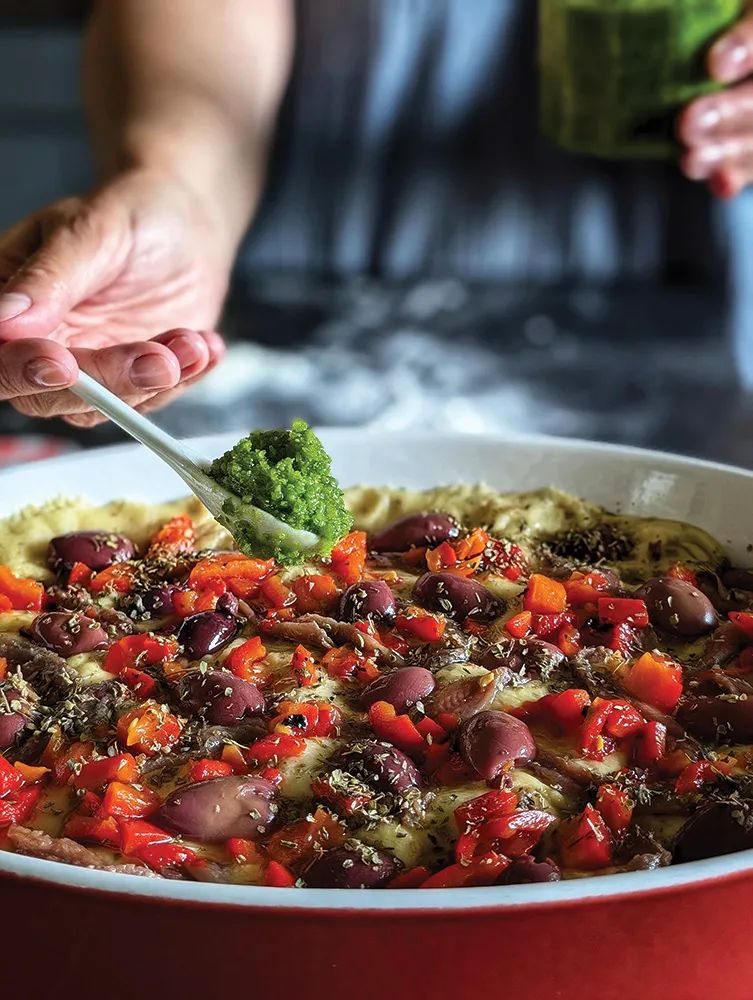
Kitchen Therapy: Cook Your Way to Calm
October 1, 2024
by Renata Haidle
“Cooking and baking is both physical and mental therapy.” – Mary Berry
Have you ever noticed how the simple act of chopping vegetables can settle the mind and bring clarity and focus? Or how the aroma of freshly baked cookies can evoke feelings of safety and calm? There have been moments in my life when the weight of the world seemed almost unbearable, and it was one of those moments when I realized that cooking does so much more than provide nourishment. It comforts us, heals us, and supports us while we weather the storm.
Research has shown links between cooking and reduced stress, anxiety, and depression. Many therapists now recommend cooking (and baking, by extension) as a tool for improving mental health and well-being, alongside art therapy, physical activity, and even play therapy. One could argue that cooking incorporates elements from all of the above - it is active, it can be playful, and it surely can be artistic. But how exactly does it help improve our mental state?
The Therapeutic Benefits of Cooking
● Mindfulness and stress reduction- Cooking requires focus and attention, helping to shift one’s attention away from worries. The repetitive motions, like chopping or stirring, can be meditative.
● Enhanced creativity- Experimenting with flavors and ingredients allows you to channel creativity. This can boost your self-esteem and provide a sense of accomplishment.
● Established routine- Cooking can add structure to your day and promote healthy habits, leading to a sense of control of your life.
● Social connection- Cooking for others and sharing a meal can foster social connections and is a great way to bond with loved ones.
● Improved nutrition- Cooking at home often leads to healthier food choices, positively impacting one’s mood and overall well-being.
● Coping with grief and loss- Cooking can offer comfort and normalcy during grief, providing a temporary escape and a way to feel connected to loved ones despite their loss.
Grief and loss are familiar feelings to all of us. It is practically impossible to go through life and not experience one or the other. Could a simple act like making a meal or baking a cake help us heal? According to Antonia Hagen-Coonradt, Senior Director at Vitalant, cooking and baking old favorites helped her through the very difficult loss of her father.
“As a medical professional, I am very familiar with Elisabeth Kübler-Ross’s book, On Death and Dying, focused on the stages of grief a patient goes through when diagnosed with a terminal illness…” After suddenly losing her father in January of this year, Antonia revisited the book to see if it would help her with the raw emotions following his passing. “I felt like someone had reached into my chest and pulled my heart out like I was hollow because I could not believe what was happening.” Originally from Germany, the distance to Antonia’s loved ones worsened the situation. Upon returning home for the funeral to spend some time with family, healing conversations were had about all of the things her father loved, including food.
Antonia continues, “We all know that when you feel bad, sad, or angry, there is nothing better than something gooey, cheesy, or sweet to make you feel better,” hence the term comfort food. After returning to Billings, Antonia started cooking her father’s favorite foods. This was both comforting and sad, reminding her of another passage in Kübler-Ross’s text where she states that grief and happiness can exist together. “Cooking and baking are often ideal for expressing other emotions; there is nothing better than punching dough when I’m angry about him leaving us or sitting down with his favorite chocolate cake when the tears won’t stop and just thinking about the time we shared that cake the last time for his 80th birthday last year.”
Bonnie Haidle, a retiree from Billings, shares a similar perspective. In recent years, she has faced the loss of her husband to an incurable illness, followed by the passing of her elderly mother and, more recently, her sister. “My husband always had a large appetite,” she recalls, “and it was rewarding to watch him eat and enjoy what I made, so, after losing him, it was therapeutic to bake and cook because I was making and baking our favorite foods.” Sharing those meals with others brought her comfort. “Being able to share them with family and friends gave me a feeling of being needed and appreciated, and l had the enjoyment of making them happy,” she explains.
While grieving her mother and sister, Bonnie again turned to the kitchen. “Cooking and baking their favorite foods made me feel closer to them,” she says, especially when using cherished family recipes. “These are recipes from my grandmother, mother-in-law, sister, and mother, and they make me feel closer to them while bringing back many happy memories. It also makes me feel very grateful for having had them in my life.”
Preventing Emotional Eating
If there is a downside to using cooking as therapy, it must be the fact that it is just too easy to fall into emotional eating. Being mindful and balanced to prevent this unhealthy attitude towards food is essential. Be aware of portion sizes, focus on nutritional food, and use healthy options whenever possible. It is also important to identify triggers, understand what thoughts might lead to emotional eating, and find alternative coping mechanisms. Remember, cooking and baking should be a pleasurable, uplifting experience. By focusing on the process, enjoying the outcome, and practicing mindful eating, you can reap the mental health benefits of cooking without falling into the emotional eating trap.
Originally printed in the October 2024 issue of Simply Local Magazine
Check this article out in the digital issue of Simply Local here!





